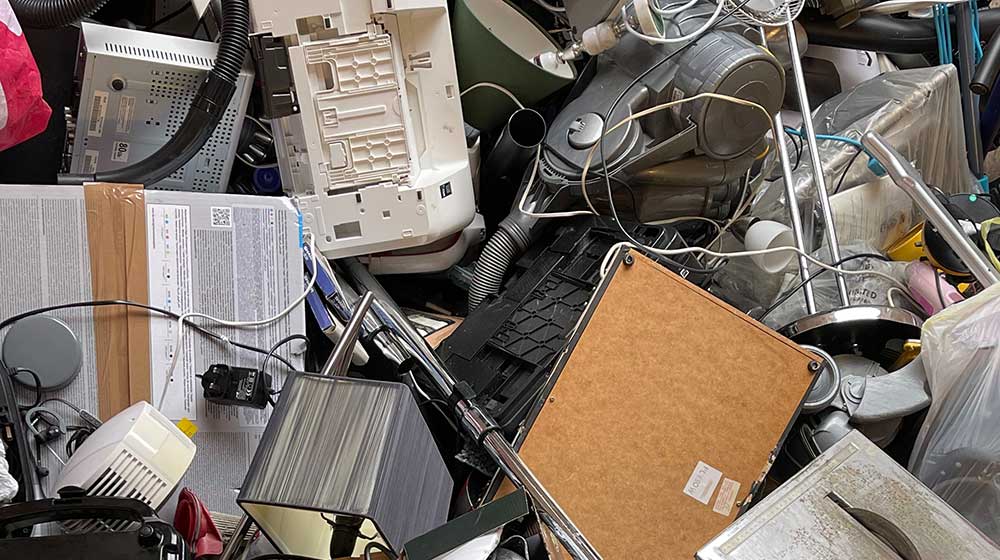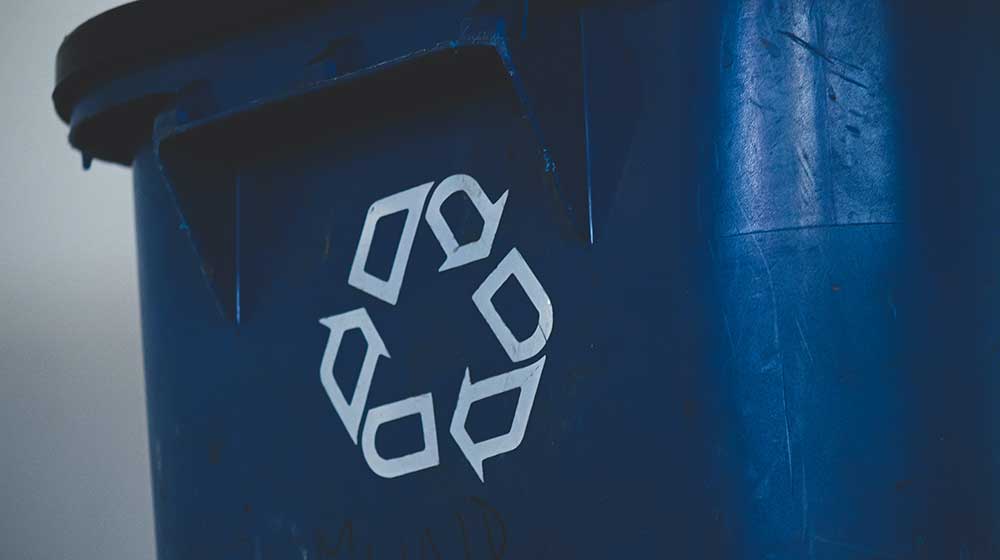
Moritz Petersen & Johannes Meuer
Everything used to be better. Wasn’t it? At least there used to be much less waste. Despite all recycling efforts, we live in an excessively throwaway society. And we’re not talking about such obvious oddities as disposable e-cigarettes, thousands of whose permanently installed batteries full of valuable metals end up in the residual waste after a short period of use. No, wasting resources is a cornerstone of our current economic system. You don’t believe that? Three pieces of evidence: 1. The greenhouse gas emissions associated with annual global food waste are greater than the annual value of India. 2. on average, each car sits unused 95 percent of the day, taking up parking space. 3. and how often we say “it’s beyond repair” and are not talking about the technical facts, but actually financial trade-offs.
Is this all just anecdotal evidence? The latest “Circularity Gap Report” sums it up in figures: The global economic system is 92.8 percent disposable. And that’s problematic, because we can’t afford such waste in the long run. Nonstop circumnavigators like Boris Hermann and Ellen MacArthur know that at sea they can only use what they packed before they set off on their month-long trips. It’s the same on a planetary scale: all resources are limited. However, we act as if we can stop along the way and “refuel” wasted resources.
But what about logistics? Was everything better here in the past, too? Certainly, the image of logistics was better. Long-distance truck drivers used to be the dream job of many children. And logistics used to be under much less public pressure to improve its sustainability performance. That’s why there used to be less relativism (“It’s only X percent of CO2 emissions after all!”) and less of the easy-to-see greenwashing that covers up many genuine and deservedly applauded sustainability efforts today. This is another reason why logistics today often appears to be part of the problem rather than (also) part of the solution.
About the authors
Moritz Petersen is Assistant Professor in Sustainable Supply Chain Practice and Director of the Center for Sustainable Logistics and Supply Chains at KLU Kühne Logistics University.
Johannes Meuer is Associate Professor for Sustainability Strategy and Operations at KLU

Recycling is the last resort
Wouldn’t it be great if we could turn back the clock on both issues? Back to the future, so to speak? One solution to both problems is called the circular economy. It is now a central political goal of the world’s largest economies and describes an economic system that ensures that resources circulate in material cycles instead of ending up in landfills or being thermally “recycled” after one-time use. Folk singer Pete Seeger sums up how this works: “If it can’t be reduced, reused, repaired, rebuilt, refurbished, refinished, resold, recycled or composted, then it should be restricted, redesigned or removed from production.” There is a reason why recycling is at the end of the list. While it is necessary, it is always a last resort in a circular economy. Let’s think of a library. Thousands of books on the shelves are borrowed over and over again and create real value: they provide distraction, new cooking recipes, give support, provide tips for lawn care, and so on. Now, books could also be read once and then recycled. Then, at most, they would have one last appearance as an egg carton.
Products and business models
What does the circular economy need? First of all, recyclable products – if they cannot be replaced by services. Durable, standardized, repairable, dismountable, upgradeable, documented are only examples of corresponding design requirements. Secondly, business models are needed that do not rely on “sell and forget,” but rather rent out products, repair them, provide temporary access, and so on. But neither of these is enough on its own. Thirdly, well-functioning operational processes are needed to collect used products, transport them in bundles, process them and return them to the cycle. The whole process must be reliable and efficient. It needs a caretaker who orchestrates material flows and closes loops. Do you read “logistics” written here in big, shiny letters above the last few sentences? So do we. Because the logistics industry can provide crucial support for the shift toward a circular economy and be part of the solution. Some logistics companies are already active in similar fields.
Logistics in the circular economy will become more regional, more small-scale and less predictable. In return, the value-added share of logistics can increase significantly (and with it the margins). And best of all, we don’t need a DeLorean or a flux compensator to get back to the future. All that is needed is logistics craftsmanship that has been built up and proven over decades. Our wish is that the logistics industry understands the circular economy as an opportunity for development and thus proactively supports and shapes change. (fw)
Do you have a special request?
Contact us if you would like to learn more about the efficiency of German logistics!